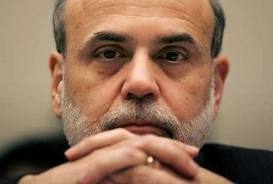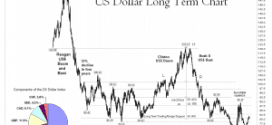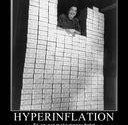Don’t get too worked up over interest on the national debt or what will happen when interest rates rise because, by then, we’ll likely be talking about ways to cool down the economy. [Why?] Because interest rates on US government debt are really a function of economic growth. If the economy is weak the Fed will pin short rates to stimulate the economy and if rates rise it’s going to be a function of better days ahead. Words: 525
So writes Cullen Roche (http://pragcap.com) in edited excerpts from his original article* entitled Bernanke on Why Rates Might Rise.
This article is presented compliments of www.FinancialArticleSummariesToday.com (A site for sore eyes and inquisitive minds) and www.munKNEE.com (Your Key to Making Money!) and may have been edited ([ ]), abridged (…) and reformatted (some sub-titles and bold/italics emphases) for the sake of clarity and brevity to ensure a fast and easy read. Please note that this paragraph must be included in any article re-posting to avoid copyright infringement.
Roche goes on to say in further edited excerpts:
One of the more common questions I get…is “what if interest rates rise in the USA?” [While] that would have broad ramifications on the cost of US government debt, asset prices, the recovery, etc. you have to keep the sequence of events in order here and ask yourself first, “what will cause rates to rise”? I think Ben Bernanke certainly knows what will cause rates to rise (per his testimony today):
“The economy will get stronger because of good policies, and that in turn will cause rates to rise in a sustainable way. If we were to raise rates prematurely we would kill the recovery and rates would come down, and we would have a long-term situation with very low rates.”
…
“The best way to get sustainable high returns to savers is to get the economy back to running on all cylinders. It’s somewhat paradoxical, but in some ways the best way to get interest rates up is to not raise them too quickly, because by keeping rates low, now, we can help the economies get stronger, we can create more jobs, we can create more momentum in the economy, that’s the way to get a sustainable higher set of interest rates. Until we can get greater forward momentum, we are not going to get sustainable higher returns.”
…
“One of the paradoxes is that the best way to get interest rates up is to have low interest rates, because that promotes a stronger growing economy and that causes interest rates to rise. In some ways the fact that interest rates have gone up a bit, and it happens on the real not the inflation side, is actually indicative of a stronger economy, which again suggests that maybe this is having some benefit.”
Interest rates on US government debt are really a function of economic growth. If the economy is weak the Fed will pin short rates to stimulate the economy. As the monopoly supplier of reserves to the banking system the Fed can always set rates at the short end of the curve. Long rates on government debt are largely an extension of short rates so there tends to be a very high correlation between the two.
The best way to think about rates is to think about the economy, how the Fed expects the economy to look in the coming years and then look at how traders might attempt to front-run the Fed’s policies. Remember, the Fed can control the yield curve, but it can’t control the economy. It can only nudge the economy by changing some influencing variables.
Conclusion
Ultimately, the path to higher rates lies with the economy and if rates rise it’s going to be a function of better days ahead.
Editor’s Note: The author’s views and conclusions are unaltered and no personal comments have been included to maintain the integrity of the original article. Furthermore, the views, conclusions and any recommendations offered in this article are not to be construed as an endorsement of such by the editor.
*http://pragcap.com/bernanke-on-why-rates-might-rise (© Copyright 2013 — PRAGMATIC CAPITALISM. All Rights Reserved)
Related Articles:
[There is a major downside to] quantitative easing; it isn’t free. There is a cost to the Fed’s policy and the bill will be past due when the economy recovers and interest rates rise. Congress will then realize that the Federal Reserve System is the biggest financial black hole in the history of mankind [and that] the tab may be big enough to blow the Federal budget and plunge Washington into a new fiscal and political crisis. Words: 8702. Soros Sees Interest Rates Soaring Soon – What Does That Mean for Bonds & Gold?
The U.S. economy is picking up steam and the Fed’s quantitative-easing approach is helping and as a result investors should watch out for a possible spike in interest rates once growth is well under way (later this year) warns billionaire financier George Soros. It has been suggested that this would adversely affect bonds but not everyone agrees. Read on!
3. A Rise in Interest Rates Would Derail An Economic Recovery – Yes or No?
[While]… I am not currently predicting an acceleration in inflation [I believe]…that the risk of interest rate instability is very real [given that] core inflation is already above a key benchmark that the Fed has staked its credibility on,. It should be of concern to investors that, despite economic growth being so anemic and overall resource utilization being so low (including human resources), there is currently very little margin for error on the inflation front. [In this article the author evaluates the danger that rising interest rates could potentially have on the U.S. economy.] Words: 2050
 munKNEE.com Your Key to Making Money
munKNEE.com Your Key to Making Money


